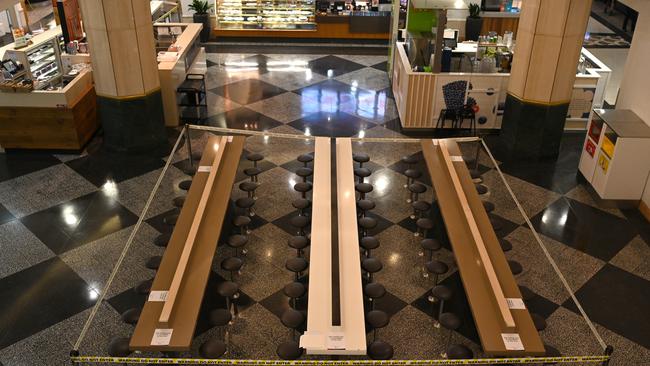Rental crisis as landlords wonder who will pay
Thousands of residential and commercial landlords remain in limbo, uncertain about how their tenants will pay rents as the coronavirus rips through the economy.

Thousands of residential and commercial landlords remain in limbo, uncertain about how their tenants will pay rents as the coronavirus rips through the economy and federal government pledges more support is to come for the troubled sector.
The deepening economic crisis and announcement of a six-month moratorium on evictions, amid calls for landlords to share in their tenants pain, has radically altered the property landscape.
Initial measures to support stood down workers have been praised but concerns have emerged that payments of $1500 a fortnight may not cover rents in major cities.
Prime Minister Scott Morrison on Monday said the government was looking at rental assistance “at the moment”, adding it was working with states and territories on residential tenancy issues.
“That continues to be a matter that is the subject of work within the national cabinet,” he said, with the states to put the eviction moratorium in place for commercial and residential leases.
But smaller landlords have flagged concerns that they will take on a substantial share of the pain from job losses and business closures in coming months.
On the residential side, investment property owners may fall into financial stress if their property incomes dry up and they cannot meet their obligations to banks, even if their payments are deferred as asset values are falling.
Real Estate Institute of New South Wales chief executive Tim McKibbin expressed concern that the financial difficulties being experienced by tenants were simply being transferred to landlords. “They’re not going away,” he said.
Mt McKibbin said that banks were deferring loan repayments and extending terms, not forgiving debts, and state governments were yet to announce either stamp duty or land tax relief, despite industry calls for relief.
He sounded a warning against landlords effectively providing social housing, with The Australian told that some home tenants were refusing to pay rents, while on the commercial side some gym and cafe operators were handing “back the keys” to their premises as they became unviable.
Ray White managing director Dan White is lobbying for the use of the existing Centrepay facility to help any residential tenants who are struggling with their rent during the pandemic and met with other agency chiefs on Monday to push for this plan.
Mr White said the federal government could offer rent assistance to all victims of COVID-19 through the Centrepay system.
“We are bound by a duty of care to look after both parties — our landlords and our tenants — and the federal government already has a system in place and it works well,” he said.
Mr White said no one was evicting any tenants but there had been massive job losses and the Centrepay system needed to be fast-tracked like many other Centrelink payments.
At the large end, “constructive” talks are taking place between the largest shopping centre owners and national chains as many have effectively refused to pay rent while malls are all but closed, following the lead of billionaire retailer Solomon Lew who has shut about 900 shops.
The pressure is on both the largest retail landlords, including Scentre and Vicinity, as well as smaller companies that own secondary malls that may not recover for years due to the economic after-effects of the coronavirus.
Macquarie analysts said that while shopping centres remain open, 16 groups across 5443 shops had already announced closures with some groups stating they will not pay rent due on April 1. Smaller retailer shutdowns are also occurring under the radar and more are cutting back their hours.
Banks have agreed not to enforce terms for non-financial breaches of loan contracts, such as changes in valuations, during the six-month deferral period, but their stance will be crucial in resolving the crisis.
Credit ratings agency Moody’s said the impact from of the outbreak on retail-focused A-REITs would be moderated by government measures to support the financial viability of shopping centre tenants like restaurants, cafes and other small businesses.
Moody’s vice president Saranga Ranasinghe said retail-focused AREITs remain exposed to the risk that demand for retail space could remain subdued even once the virus was contained, as virus-related disruptions will have weakened tenants’ credit profiles.




To join the conversation, please log in. Don't have an account? Register
Join the conversation, you are commenting as Logout